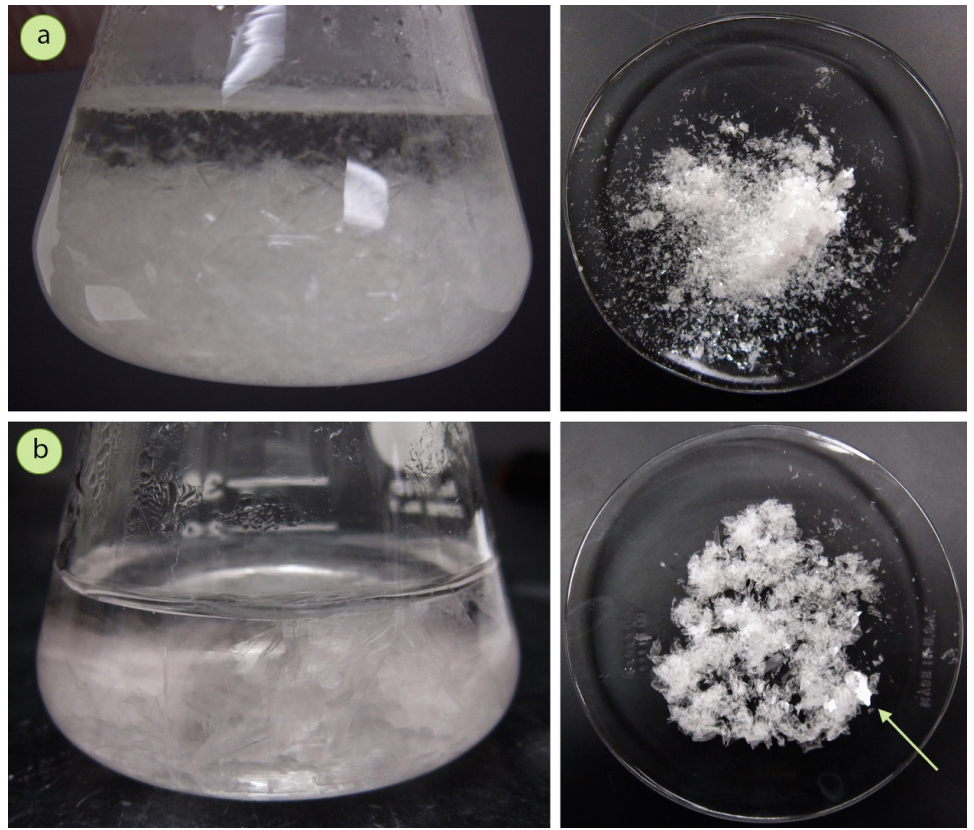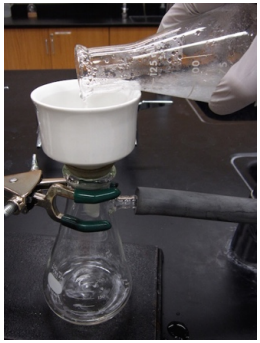3.4B: Cooling Slowly
- Page ID
- 95756
The difference in crystal lattice energy between pure and impure solids is marginal, so a solution must be cooled SLOWLY to allow for differentiation. If a hot solution is plunged immediately into an ice bath, the system will favor the formation of a solid (any solid!) so strongly that there may be little preference for purity. Impurities can become engulfed in the developing solid and trapped as solutes are deposited unselectively onto the growing solid. It is only when enough time is allowed for equilibration between the developing solid and the solution that the lowest energy pure solid is formed.
As a metaphor for the slow crystallization process, imagine that you have won a prize and are allowed to go into a tube, where money in the form of $1 and $100 bills will be blown around for you to grab. The prize rules state that you're only allowed to keep a total of twenty bills. Imagine you are given just 30 seconds in the money tube to grab twenty bills: you would likely grab whatever bills you can get your hands on, and hope that most of them are $100 bills. If instead given more time in the money tube (perhaps 10 minutes), you could be less frenzied and more selective about choosing $100 bills while excluding $1 bills.
In a similar way, the crystallization process can be though of as the crystal lattice "grabbing" solutes from solution. If the process is hurried, solutes may be "grabbed" indiscriminately, and once embedded in the interior of the solid they become trapped as the equilibrium between solid and solution happens only on the surface.
Along with increased purity, a slow crystallization process also encourages the growth of larger crystals. Figure 3.17 shows crystallization of acetanilide from water with two different rates. The crystals grown in Figure 3.17a were formed much more quickly, and are smaller than the slower grown, larger crystals in Figure 3.17b.

There are several benefits to larger crystals. Most importantly they tend to be purer than small crystals. They also have a lower surface area exposed to the mother liquid, which makes washing of the crystals more effective. Finally, they are more easily collected by suction filtration (Figure 3.18), as very small crystals may pass through or wedge themselves into the pores of the filter paper, preventing solvent from easily trickling through and leading to crystals that are irrecoverable.



